- Florida College Of Natural Health is a Steiner Education Group member. Steiner Leisure brings innovation and vitality to the spa concept through its vision of an educated spa culture. As the leader of an ever-growing industry it is our responsibility to ensure every human being understands and believes that relaxation heals. Our focus is to provide concepts, education, spa-therapies and products that nurture a person both internally and externally.
School Highlights
Cortiva Institute served 194 students (100% of students were full-time).
The college's student:teacher ratio of 10:1 was lower than the state community college average of 20:1.
Minority enrollment was 80% of the student body (majority Black), which was more than the state average of 67%.
School Overview
Cortiva Institute
(FL) Community College Avg.
Carnegie Classification
Not applicable, not in Carnegie universe (not accredited or nondegree-granting)
Not applicable, not in Carnegie universe (not accredited or nondegree-granting)
Institution Level
Less than 2 years (below associate)
At least 2 but less than 4 years
Institution Control
Private for-profit
Private not-for-profit
Total Faculty
20 staff
139 staff
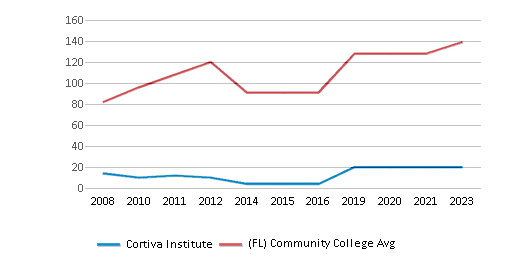
Number of Programs Offered
4
11
Student Body
Total Enrollment
194 students
646 students
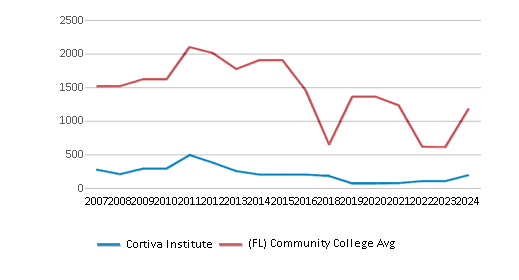
Student : Teacher Ratio
10:1
20:1
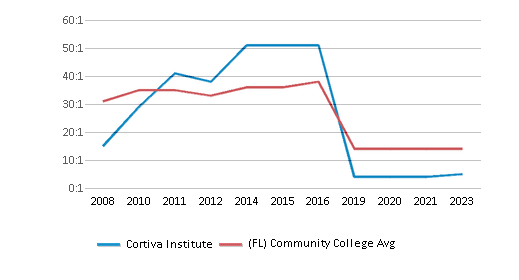
# Full-Time Students
194 students
587 students
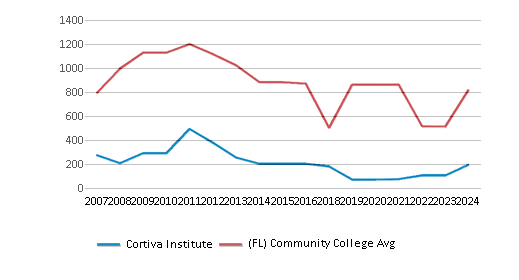
# Part-Time Students
n/a
557 students
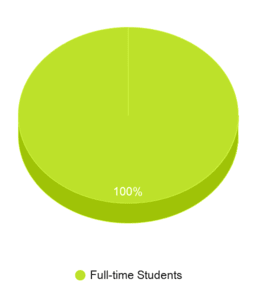
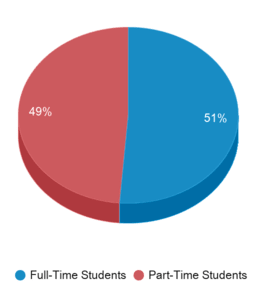
# Enrollment Undergraduate
194 students
261 students
# Full-Time Undergraduate Students
194 students
574 students
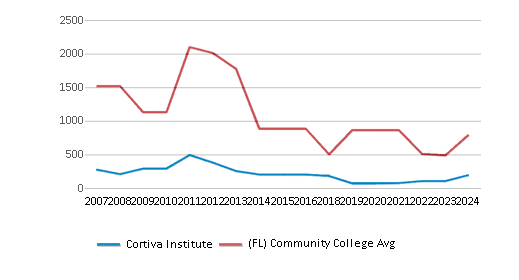
# Full-Time Graduate Students
n/a
85 students
# Part-Time Undergraduate Students
n/a
648 students
# Part-Time Graduate Students
n/a
36 students
Total Dormitory Capacity
n/a
174 students
% American Indian/Alaskan
2%
n/a
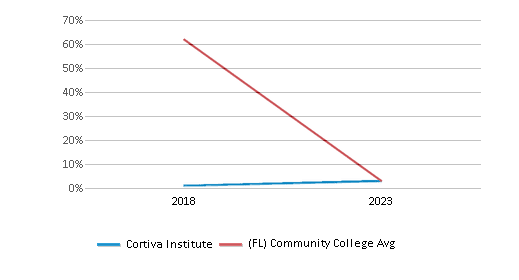
% Asian
1%
5%
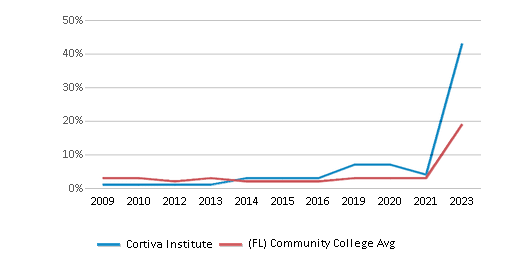
% Hispanic
23%
30%
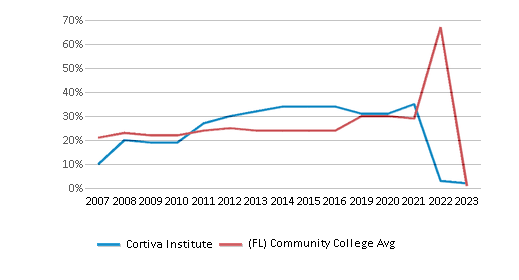
% Black
53%
19%
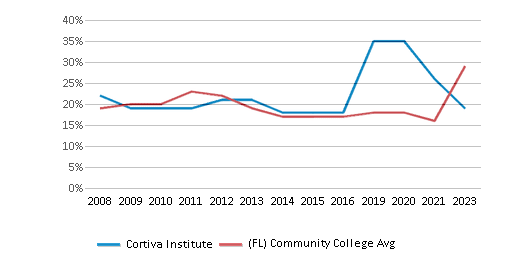
% White
20%
33%
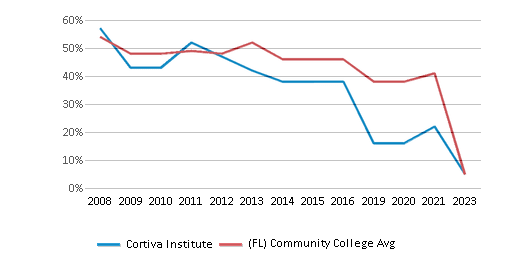
% Hawaiian
1%
2%
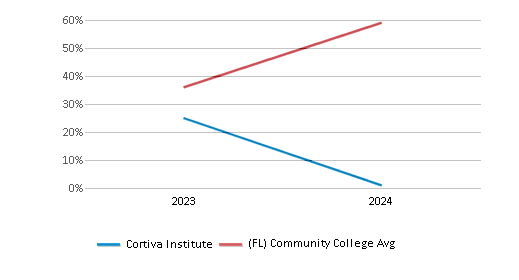
% Two or more races
1%
4%
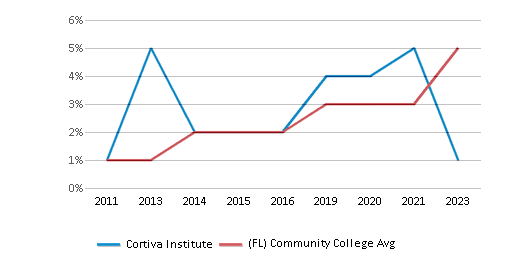
% Non Resident races
1%
2%
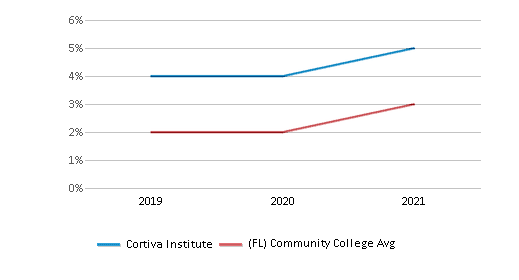
% Unknown races
1%
5%
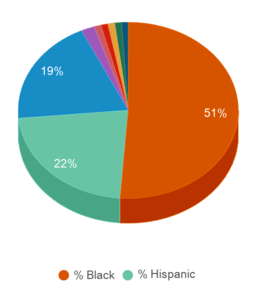
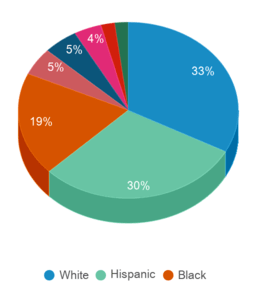
Diversity Score
0.63
0.76
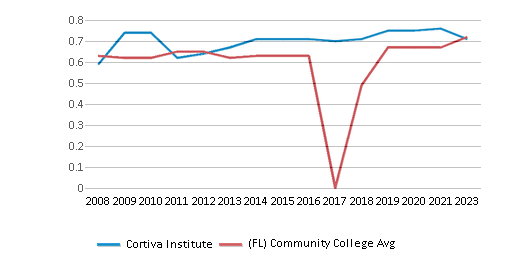
College Completion Rate (Students who graduate in less than 4 years)
0.7813%
0.6183%
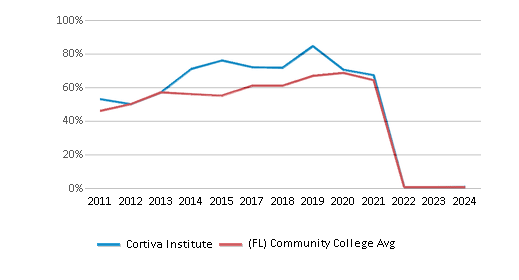
College Completion Rate (Students who graduate in 4 years or more than 4 years)
n/a
0.4334%
Average Graduate Earnings (10 Years)
$27,900
$31,500
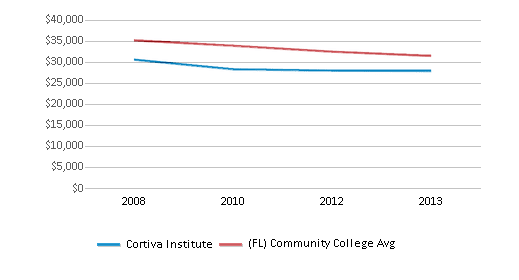
Tuition and Acceptance Rate
% Students Receiving Some Financial Aid
100%
88%
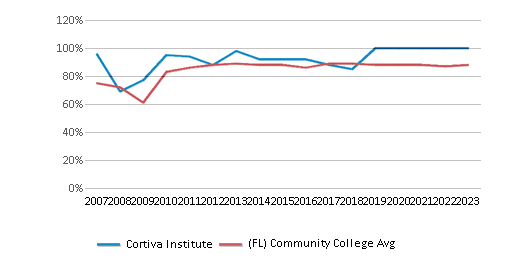
Median Debt for Graduates
$7,136
$9,750
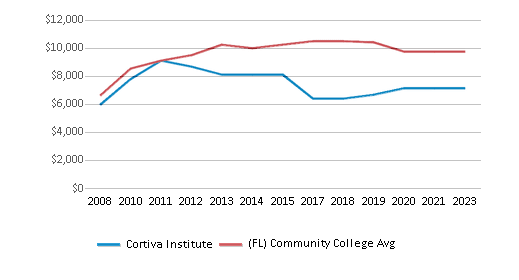
Median Debt for Dropouts
$3,959
$5,500
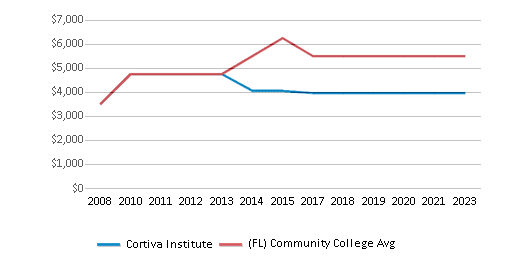
Acceptance Rate
n/a
94%
SAT Reading
n/a
442
SAT Math
n/a
429
ACT Composite
n/a
18
ACT English
n/a
18
ACT Math
n/a
18
Source: 2024 (or latest year available) Integrated Postsecondary Education Data System (IPEDS)
School Notes
- Florida college of Natural Health has four campuses. Main Campus is located at Ft. Lauderdale. Branch Campuses are located at Miami, Sarasota/Manatee and Orlando. Programs offered by the Florida college of Natural Health includes Massage & Spa Training, Advanced Massage, Concentration in Paramedical Skin Care, Massage Skin Care Training and Professional Program in Shiatsu and Asian Bodywork. The Fort Lauderdale Campus is conveniently located minutes from the city on the northeast corner of Sample and Powerline Roads in Pompano Beach, Florida. The campus is approximately 12,000 square feet in size. Florida College of Natural Health is accredited by the Commission for Independent Education, Department of Education.
Recent Articles

Obtaining Your Bachelor's Degree at a Community College
Explore the evolving landscape of community colleges offering bachelor's degrees, addressing affordability, accessibility, and workforce needs.

A to Z of Community College Certificates and Courses
From business and healthcare to technology and skilled trades, the article showcases the breadth of options available to students seeking to enhance their knowledge, develop new skills, or pursue career advancement.

What is a Community College?
This comprehensive guide explains what a community college is, its history, and its role in higher education. It covers the types of programs offered, differences from four-year colleges, benefits of attending, and important considerations for prospective students, providing valuable insights for those exploring educational options.





